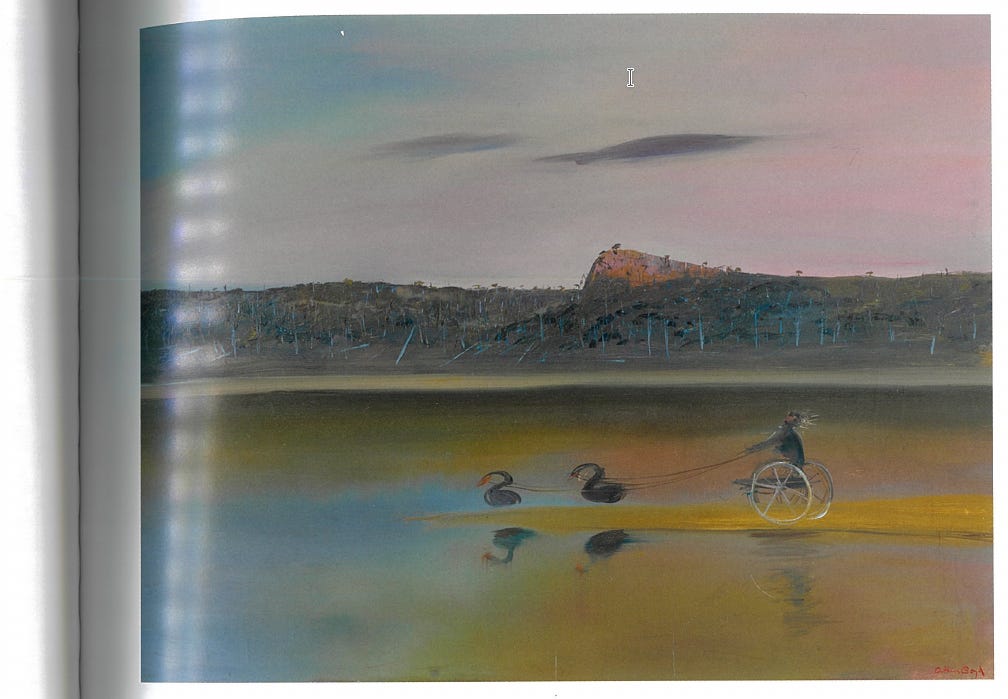.before country (not forgetting ⓪ ∅)
This post has mainly been “prompted” by becoming aware of some “prior art” by Arthur Boyd, though one of the main stories was inspired by a conversation with Julie Gough
In Cormac Orthography, more or less from a few weeks ago I introduced my position on punctuation, and in Slash-and-burn is a category killer, just watch me blur a cleaving to/apart I get heavily into building a position for my use of the slash used either back \ and/or forth.
Looking back, it seems in those posts I failed to mention my recent discovery that Wittgenstein argued for more punctuation not less, as it slowed down his reading. This was a good thing, things getting in the way (reframing?) was a good thing. But why would a story-teller want that? Why let truth get in the way let alone a semi-colon?
I am still trying to find that Wittgenstein reference. (There is a post on reference/linkage and prompt engineering as essay-writing coming up.)

But today I’d like to highlight some ancient work of mine which played around with the ideas from programming (of passing functions to readers, with arguments) as well as with dots/periods/points/stops/bullets/asterisks in relation to what charcters say .to themselves or •out loud. (A distinction which would be total science fiction for people who have no inner voice.)

It’s a set of short stories and extended prose poems in which punctuation is one of the characters, at least, it is one of the characters which develop as the work progresses. It is not so much meta-fiction as concrete poetry stream of consciouness— meta-punctuation?
I produced it to explore print-on-demand services over 15 years ago and is now a part of the long tail at amazon.com. Some review copies are available around the place at the price that it cost me for the whole run.
You can download a PDF here at meika.loofs-samorzewski.com/beforecountry.html

This post has mainly been “prompted” by becoming aware of some “prior art” by Arthur Boyd, included at the head of this post, though one of the main pieces in .before Country, was “inspired” by a conversation with Julie Gough about Shadow of the spear on a trip to that place in her country.

Re-posted 2024 on whyweshould.loofs-samorzewski.com


